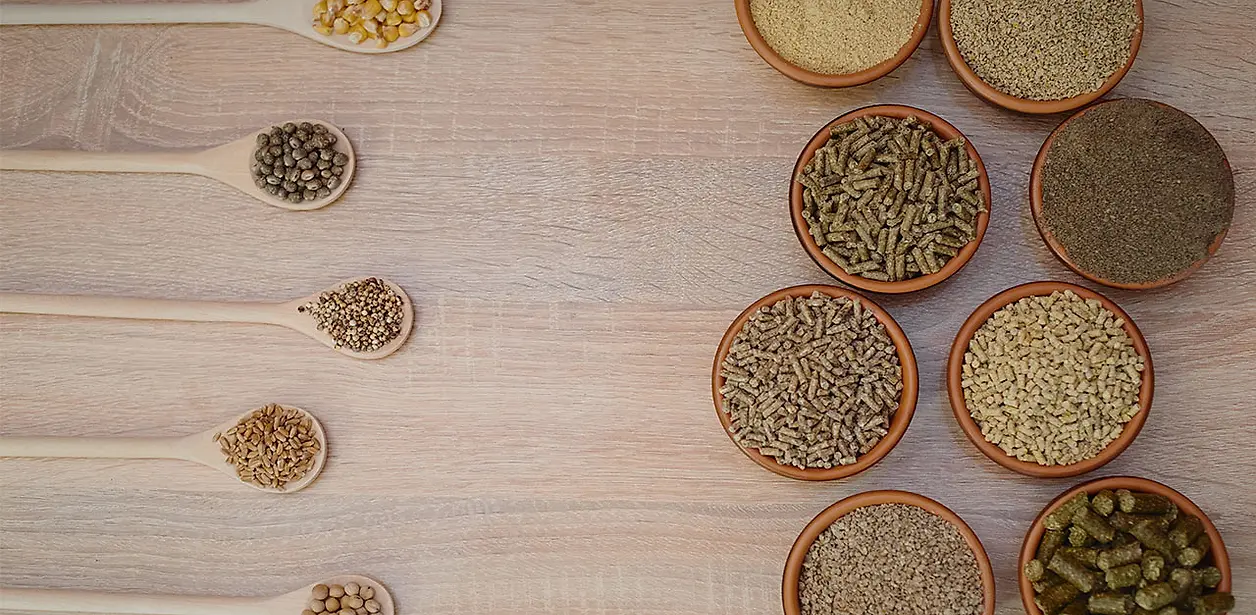ISO 95203 Crude Fat Profiling in Plant Protein Concentrates
The ISO 95203 standard specifies a method for determining the crude fat content and its distribution profile in plant protein concentrates. This service is particularly important for ensuring product quality, compliance with regulatory standards, and supporting research and development efforts within the food and feed industries.
Crude fat profiling involves the detailed analysis of fats present in plant-based protein concentrates used as ingredients in animal feeds or human foods. Understanding these profiles helps manufacturers tailor their products to meet specific nutritional requirements while ensuring safety and efficacy.
The process begins with sample preparation, which includes accurately weighing a representative portion of the concentrate. This is followed by extraction using solvents such as ethanol or petroleum ether according to standard procedures outlined in ISO 95203. The extracted fats are then quantified gravimetrically or through chromatographic methods.
Once obtained, the fat content and its components can be further analyzed for fatty acid composition using techniques like gas chromatography (GC). This provides a comprehensive view of not only how much fat is present but also which types of fatty acids contribute to it. Such information is crucial when formulating balanced diets that meet both nutritional needs and regulatory requirements.
Our laboratory adheres strictly to ISO 95203 guidelines throughout this process, ensuring accurate results that are reliable across various batches or samples. By leveraging advanced analytical tools and experienced personnel, we deliver precise data on crude fat content and distribution, supporting informed decision-making for quality assurance teams.
The importance of ISO 95203 lies in its ability to provide consistent methods for quantifying fats in plant protein concentrates. This consistency is vital given the wide variety of raw materials used in food and feed production processes. Consistent analysis allows manufacturers to compare different batches easily, identify trends over time, and make adjustments if necessary.
For instance, understanding changes in crude fat levels due to seasonal fluctuations or supply chain variations can help optimize inventory management strategies. Additionally, detailed fatty acid profiles give insights into potential health benefits or risks associated with consuming products made from these concentrates.
| Step | Description |
|---|---|
| Weighing | Accurately measure a representative sample of the concentrate. |
| Extraction | Use appropriate solvent to extract fats from the sample. |
| Drying | Remove moisture content from the extracted fat. |
| Balancing | Ensure equal weight before final measurement. |
| Method | Description |
|---|---|
| Gas Chromatography (GC) | Analyze individual fatty acids based on retention times. |
| Mass Spectrometry (MS) | Determine structure and identity of complex mixtures. |
| Infrared Spectroscopy | Identify functional groups within molecules. |
In summary, ISO 95203 Crude Fat Profiling in Plant Protein Concentrates offers a robust framework for evaluating fat content and composition. This service supports critical aspects of food safety, product development, and regulatory compliance across the industry.
Benefits
- Enhances product quality through consistent measurement techniques.
- Simplifies regulatory compliance by providing standardized methods.
- Promotes innovation in formulating balanced nutritional profiles.
- Facilitates better understanding of raw material characteristics.
- Aids in identifying potential allergens or contaminants early.
- Supports sustainable sourcing practices by tracking fat content variations.
Industry Applications
| Sector | Application |
|---|---|
| Agriculture | Monitoring feed efficiency and animal health. |
| Food Manufacturing | Developing new product lines with optimal fat content. |
| R&D | Exploring the effects of varying fat sources on nutritional outcomes. |
| Regulatory Compliance | Ensuring adherence to national and international food safety standards. |
The application of ISO 95203 extends beyond just manufacturing; it plays a key role in research and development efforts aimed at improving the nutritional value of products while maintaining safety. By providing clear guidelines on how to perform these analyses accurately, this standard contributes significantly towards fostering innovation within the industry.
Environmental and Sustainability Contributions
The analysis of crude fat content in plant protein concentrates can contribute positively to environmental sustainability. By optimizing fat content levels, manufacturers can reduce waste generation during processing stages. Additionally, knowing the exact type and quantity of fats present enables better management of resources, which ultimately leads to more efficient use of agricultural inputs.
Furthermore, understanding how different types of fats behave under various conditions allows for improved formulation practices that minimize environmental impact without compromising product quality or safety. This knowledge also supports efforts aimed at reducing carbon footprints associated with food production processes by promoting the use of sustainable ingredients rich in essential fatty acids.





